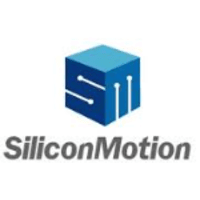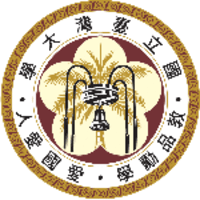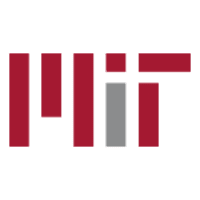
Yuan-Yao (Mike) Lou
Ph.D. student in ECE @ Purdue
West Lafayette, IN
I'm a second-year Ph.D. student at Purdue University as part of the EDGE Lab, co-advised by Prof. Mung Chiang and Prof. Kwang Taik Kim. My research interests lie in the intersection of 1) the architectural design of real-time open edge platforms to jointly optimize microservice-based edge applications and RAN performance, and 2) machine learning in the realms of wireless system design in 5G/6G networks.
Prior to joining Purdue, I was a senior software engineer experienced in (1) the development of microservice-based automation systems on on-premise Linux servers, and (2) web application development on AWS. I received my B.S. and M.S. degrees in Computer Science (CS) from National Chiao Tung University (NCTU) and National Taiwan University (NTU) in 2015 and 2017, respectively.
Work Experience
Graduate Research Assistant
Purdue University • August 2021 - Present
Advisors: Prof. Mung Chiang and Prof. Kwang Taik Kim
Open Edge Platform
1. Design and propose alternative open architecture of MEC and O-RAN integrated systems to optimize edge applications and RAN performance jointly
2. Quantify and analyze trade-off between each option of open architecture including deployment of radio and computing nodes and RAN functional splits
3. Explore deep reinforcement learning and adapt collaborative intelligence in containerized systems to orchestrate RAN control tasks and optimize edge services
4. Deploy computation offloading framework of multi-tier edge computing in real testbed on CBRS 4G network and evaluated end-to-end latency
Autonomous Vehicles
1. Introduce novel framework of edge-assisted model predictive control in local path planning to exploit unique characteristics of edge network
2. Identify and analyze three different ways of heterogeneity of edge networks to benefit robot agents and reduce cost-to-go
3. Conduct series of numerical evaluations with visualized driving results to demonstrate effectiveness and performance advantages of each method
Leadership and Collaboration
1. Mentor undergraduate students to study Robot Operating System (ROS) and explore open-source computer networking projects in 5G area
2. Work with industry partners with 10+ engineers to bridge gap between theory and practice of deploying and orchestrating softwarized open cellular systems
3. Collaborate with Purdue research teams on AI IoT and Industry 4.0 projects including collaborative video analysis

Full-stack Cloud Developer
IoT Eye Inc. • April 2021 - August 2021
1. Deployed multi-agency management platform on AWS using Frappe framework to support five industry partners
2. Developed DevOps toolkit in Python automating product deployment and management to improve scalability
3. Automated Flask Eve API testing using Postman and Python to boost product robustness

Software Engineer (Supervisor)
Silicon Motion • December 2017 - April 2021
Software Engineer (Supervisor)
Jul 2020 - Apr 2021
1. Devised microservice-based platform in on-premise servers automating design flows and improving verification robustness to boost development efficiency
2. Acted as primary external contact person to collaborate with international companies for researching new solutions
3. Established programming disciplines (Python) and organized training sessions for new employees
Software Engineer (Senior)
Dec 2017 - Jun 2020
1. Developed in-house design verification tools reviewing timing and power requirements to improve reliability
2. Automated library maintenance flow using Python and shell script to save manual effort by up to 80%
3. Cooperated with Human Resources as technical campus recruiter to promote on-campus brand awareness
4. Promoted twice within 24 months for outstanding performance on software development and solution finding

Graduate Researcher and Backend Engineer
Ministry of Science and Technology • September 2015 - September 2017
Advisor: Prof. Ai-Chun Pang
Wearable Edge Computing
1. Proposed microservice-based offloading framework (Virtual Local-Hub) for Android wearable devices by edge computing and WiFi P2P concept
2. Modified Android Wear OS to intercept system calls and redirect application API calls to wireless base stations for offloading orchestration
3. Reduced execution time of wearable microservices by up to 60% and CPU usage by up to 70%
4. Published conference paper on ACM MSWiM 2016 and book chapter in 2020
Networked System Development
1. Built WLAN testbed from scratch including DHCP and NAT to evaluate E2E latency and power consumption of wearable edge computing framework
2. Designed telemetry platform using Django to monitor system performance and manage service provisioning
3. Developed latency-sensitive applications on Android devices such as speech recognition using CMUSphinx

Teaching Assistant
National Taiwan University • February 2016 - January 2017
CSIE 3510 - Computer Network
1. Designed IRC chatbot application as project assignment to teach students socket programming
2. Enhanced program robustness by peer-testing system and stimulated creativity by flexible score criterion
CSIE 5057 - Advanced Computer Network
1. Lectured TCP/IP protocol (802.11, 802.3) and demonstrated network packet monitoring and analysis using WireShark
2. Assigned paper readings and hold course seminar for final evaluation

App Inventor | Openource Developer
Massachusetts Institute of Technology • March 2015 - June 2015
1. Delivered new feature to improve programmability of visual programming environment through GCP App Engine
2. Attended App Inventor Summit at MIT in Boston, MA, USA as open-source developer in 2013

Research Intern
Princeton University • July 2014 - March 2015
Mentors: Prof. Mung Chiang, Dr. Ming-Jye Sheng
4G LTE (RRC/DRX) & IoT
1. Built Markov chain model based on RRC inference algorithms in AT&T tools to analyze DRX impact on 4G LTE IoT session management factors (signal load, power, delay)
2. Conduct probabilistic model simulations to reveal the efficacy of algorithms in power saving and signal reduction for IoT
3. Developed research toolkits based on AT&T Lab tools to analyze packets and profile Android application performance
4. Published journal paper in IEEE Internet of Things Journal (IoT-J) in 2016

Education
Purdue University
Electrical and Computer Engineering • 2021 - 2026
Advisors: Prof. Mung Chiang and Prof. Kwang Taik Kim
Coursework:
■ Fall 2021: ECE 59500 Introduction to Deep Learning, ECE 50863 Computer Network Systems
■ Spring 2022: ECE 69500 Deep Learning, STAT 55300 Theory of Linear Model
■ Fall 2022: ECE 56300 Programming Parallel Machines, MA 51100 Linear Algebra With Applications
■ Spring 2023: ECE 69500 Advanced IoT Design and Application

National Taiwan University
Computer Science • 2015 - 2017
Advisor: Prof. Ai-Chun Pang
Thesis: Fog-based Virtualization for Low-Latency Wearable Services
Course Project: MOOC Platform Course Dropout Prediction (Machine Learning Course)
■ Acted as team leader to train machine learning models and evaluate datasets (Python)
■ Achieved 96% of accuracy rate by applying ensemble machine learning with factor analysis (Gradient Boosted DT + AdaBoost)
■ Analyzed complexity and pros-cons of machine learning models for model blending

National Chiao Tung University
Computer Science • 2011 - 2015
Advisor: Prof. Shiao-Li Tsao
Project: Accelerating HEVC by Adopting GPGPU/CUDA

Rice University
English as a Second Language (ESL) Program • 2013 - 2013
Level 5

